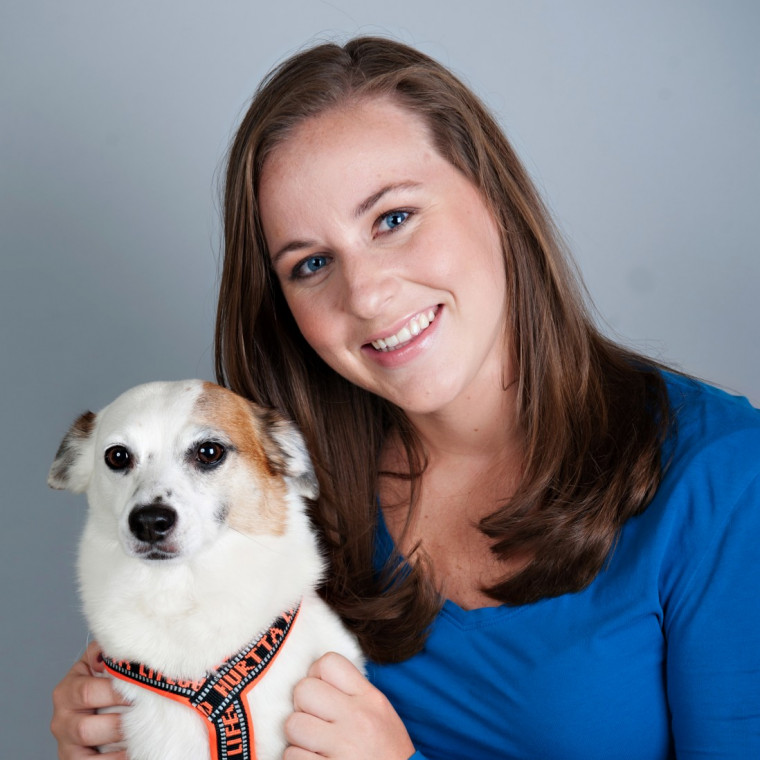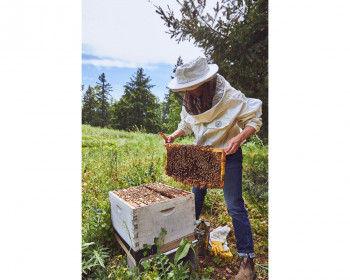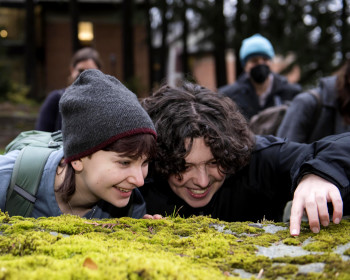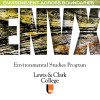ENVS Blog: How to Get a Job Saving Animals
Open gallery

Chloe Waterman (’12)
In April of my senior year at Lewis & Clark, I started a file folder labeled “Project Let’s-Not-Be-Homeless-and-Save-Animals.” It mostly contained job descriptions for entry-level positions at nonprofits devoted to animal protection. Given that my primary goal was – and still is – to reduce animal suffering, going to work for a nonprofit with a mission to do just that seemed like a natural fit. Because this strategy has happened to work out well for me (I am saving animals working at a nonprofit and am not homeless), I recognize that I am on shaky ground when I advise current students to consider a different path – but hear me out.
Nonprofit organizations play a crucial and irreplaceable role in solving all sorts of social ills – ending factory farming, reducing solid waste, preventing human trafficking, you name it. I am not disputing the value of that work – in fact, my argument is that recent graduates should choose early career paths that do more to contribute to eventual success in the nonprofit world. In other words, play the long game.
I landed my job working on state legislation for a large, national animal welfare organization through an internship. Had I applied cold, my boss would’ve tossed my application in the trash. What experience did I have to bring our organization? What made me stand out above the dozens of other applicants? Good grades and internships are par for the course. We are looking for employees who have valuable experience and relationships that they can marshal towards our goals.
One trick for figuring out what sorts of experience and relationships would be most useful to your field is to ask: Who are the important players? In the world of animal welfare policy, it is legislators and staff, agency officials, and industry. That is where I suggest recent graduates look for employment in the animal welfare movement. Go work in a state legislature or on Capitol Hill and ask to handle animal issues for your boss. I know legislators whose interest in animal issues arose from a staffperson who was passionate about a certain issue. Get a job with a state department of agriculture enforcing a puppy mill law. Develop an animal welfare policy at a large food corporation. Manage a farm’s transition to humane confinement methods. Go to veterinary school. Learn how things work from the inside – and help.
My colleagues and I have the most success when we find a smart, caring person in an agency or in the legislature who wants to help us protect animals. So I’m urging you, to make my job easier, to go become one of those people! These jobs have a great deal of influence over animal welfare, and I would suggest getting them sooner rather than later. If you go work for a nonprofit straight out of college, you run the risk of branding yourself as an activist, which is likely to reduce your chances of landing in these positions later on.
A second question to ask yourself is: If I don’t get this job, who will? For any given job in the nonprofit animal welfare policy field, there are probably around fifty or so applicants, maybe a dozen of whom are qualified. If you don’t get the job, someone else will, and they will do it well. Think about how you can make a contribution that would not otherwise happen. All of the options I listed earlier fit this category, but it is by no means an exhaustive list. I’ll throw one last wild idea out there. Get a job on Wall Street. I recognize Portland to Wall Street is a big jump, but if you really want to make the world a better place, go make six figures and donate double the salary of the position at a nonprofit you were going to apply for before you read this enlightening blog.
The good news about finding the right job out of college is that we have long careers ahead of us and plenty of time to forge a path that makes us best-prepared for our ideal job. Play the long game, look for unique contributions you can make to your field, and try not to be homeless – and you’ll be fine.
More Environmental Studies Stories
Environmental Studies is located in room 343A of John R. Howard Hall on the Undergraduate Campus.
MSC: 62
email envs@lclark.edu
voice 503-768-7790
fax 503-768-7620
Symposium Advisor Jessica Kleiss
Environmental Studies
Lewis & Clark
615 S. Palatine Hill Road MSC 62
Portland OR 97219


